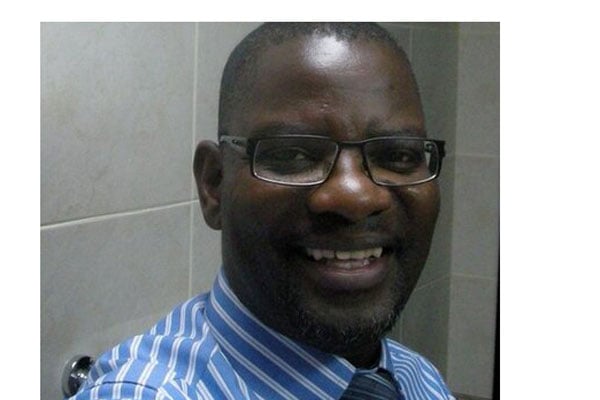Covidex and the dependency syndrome bogging down Africa

Author: Musaazi Namiti. PHOTO/FILE
What you need to know:
- ‘‘That grabbed my attention and should encourage Africans to do more -- and better”
Dr Patrick Ogwang, the scientist behind Covidex, the herbal drug that is supposed to relieve symptoms of Covid-19 and is being developed as a cure, told a depressingly familiar story that many people have heard from Africans who are onto something big.
When the coronavirus hit Uganda in March 2020, he said, scientists were asked by the government to propose solutions about how the virus could be tackled. He came up with an idea of developing a herbal drug, but the committee that was handling Covid-19 matters apparently pooh-poohed it.
If it was not for the intervention of Dr Elioda Tumwesigye, the former minister of Science, Technology and Innovation, who encouraged Dr Ogwang and his team to write a proposal, there would probably be no Covidex.
Even then Dr Ogwang set about drafting the proposal reluctantly and sluggishly — because previous proposals for ambitious projects had not received funds. He said his team secured modest funding to begin work on Covidex in April 2021, which only kicked off in earnest in June.
It is early days and it is far from clear whether Covidex will become the effective cure its makers are hoping for.
Some drugs require enormous financial resources and years of research to develop. Covidex, which has been cautiously approved by the National Drugs Authority (NDA), took only months to develop and is already on the market.
The current debate about the drug is on whether it was tested in people after laboratory and animal tests to establish its efficacy and whether it would be safe and work well in humans. In countries with safe and advanced pharmaceutical systems, this is standard practice.
Ugandans may have to wait a little longer to see how things will pan out. But the government should, at the very least, ensure that Dr Ogwang and his team get all the support and resources they need to develop the drug. Let this be one of the few positive things the Museveni-led government can be remembered for.
Dr Ogwang said that eastern and southern Africa have 24 centres of excellence set up by governments and the World Bank to promote scientific research.
“If these centres are strengthened, and research is encouraged,” he went on, “Africa will stop begging from other continents. We will also be giving solutions to other continents to handle their problems.”
That grabbed my attention and should encourage Africans to do more — and better. But Africa has a dependency syndrome that is hard to understand and is probably the principal reason none of its people has come up with a real solution to Covid-19. All our eyes remain glued to Western nations for help.
The age-old dependency syndrome is almost everywhere you look. Grants for the Africa Climate Change Fund come from rich nations. China built the headquarters of the African Union at a cost of $200 million — and went on to bug the complex.
The peacekeeping mission in Somalia has been financed by the European Union. Africa’s foremost financial institution, the AfDB, which provides development finance, would be severely undercapitalised if its 26 non-regional members, mostly rich nations, were not part of the bank.
We really need to get our act together. If every African country, for example, raised $500,000 every three months to help fund the centres in question and, more importantly, the Centres for Disease Control in Addis Ababa, we would enable our own scientists to respond effectively to disease threats.
We would not be begging for help — something we have become famous for.
Mr Namiti is a journalist and former Al Jazeera digital editor in charge of the Africa desk
[email protected] @kazbuk




